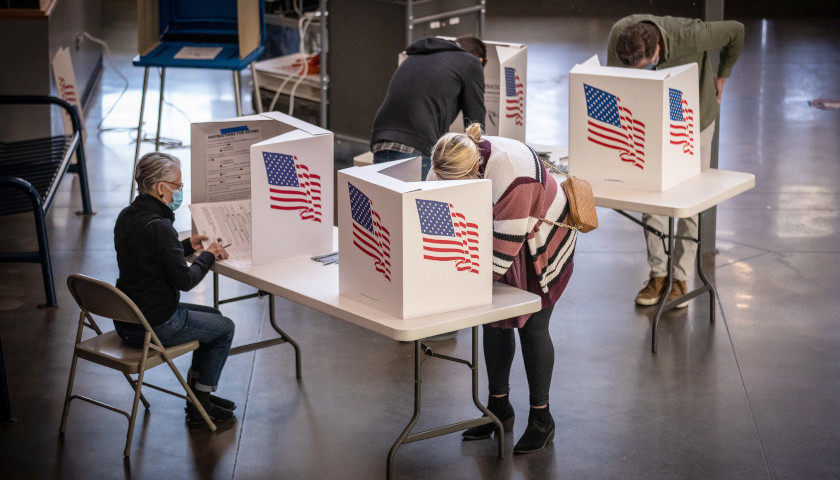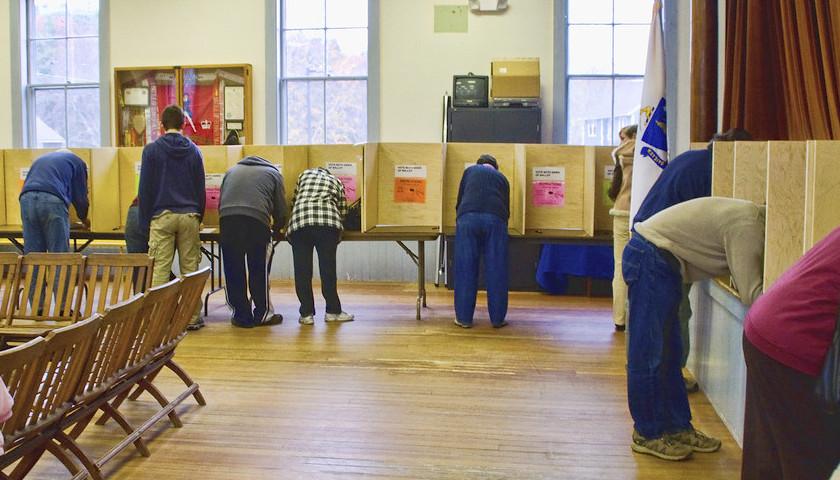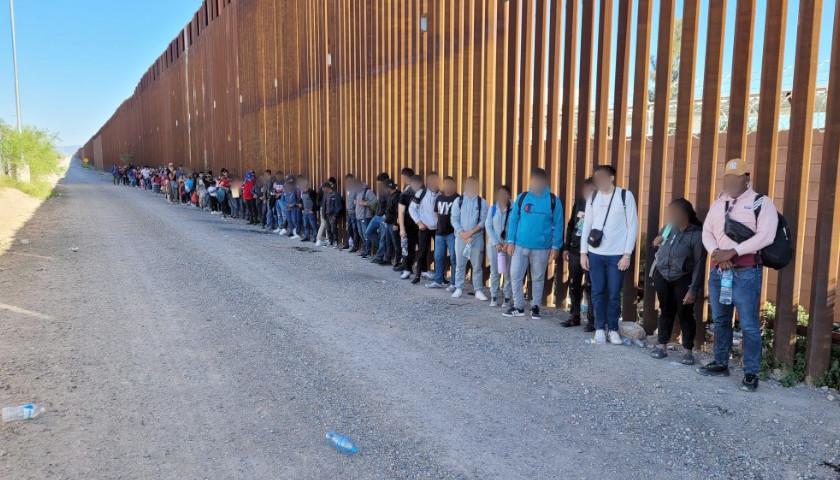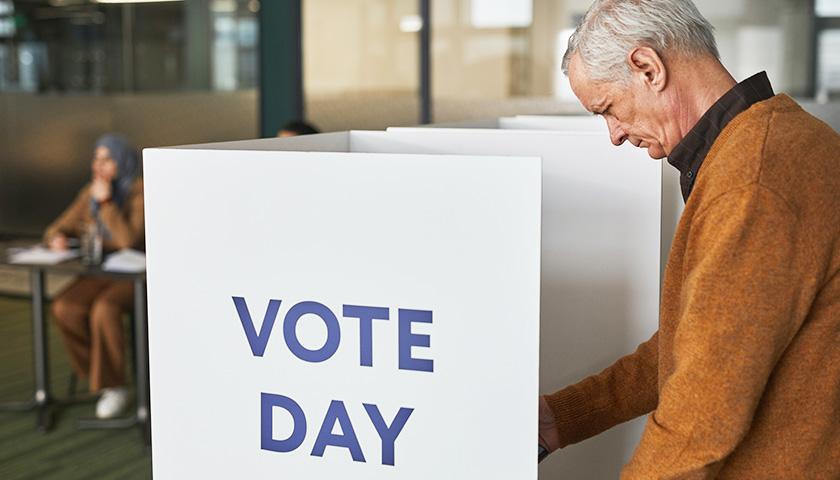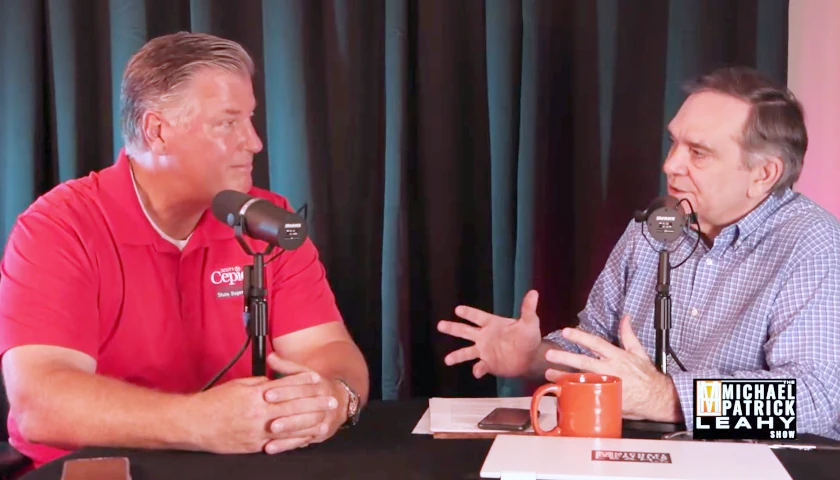by Natalia Mittelstadt
The firing of a Milwaukee election official this week after she sent military ballots to a state representative highlights another election vulnerability in Wisconsin, where a rash of election administration irregularities and legal breaches have been exposed since 2020.
During a press conference on Thursday, Milwaukee Mayor Cavalier Johnson announced that Kimberly Zapata, deputy director of the Milwaukee Election Commission, was fired after she requested that three absentee military ballots be sent to the home of Republican state Rep. Janel Brandtjen. Brandtjen turned the ballots in to the Waukesha County sheriff last Friday.
“I believe someone was trying to point out how easy it is to get military ballots in Wisconsin,” Brandtjen said in a statement on Saturday. “Registration for military ballots is not required, so a fictitious name and birthdate is all that is required to obtain a military ballot online. Feeling shocked about this situation is an understatement because it demonstrates stolen valor from those who protect this nation.
“I think it’s sad that people feel they have to break the law to get the attention of the legislature. This is now the second time citizens have tried to point out loopholes in our elections.”
In July, Wisconsin prosecutors charged a Racine County man with election fraud and identity theft for fraudulently requesting absentee ballots for Assembly Speaker Robin Vos and Racine Mayor Cory Mason, which he said he did to expose the possibility for fraud.
In a statement released by the mayor’s office on Thursday, Johnson said he learned on Wednesday that Zapata had “apparently sought fictious [sic] military ballots from a state election website and had those ballots directed to a state representative.
“I will not accept, I will not tolerate, and I certainly will not defend any misrepresentation by a city official involved in elections,” he continued. “It does not matter that this might have been an effort to expose a vulnerability that state law created. It does not matter that this alleged crime did not take place at work. It does not matter that City of Milwaukee ballots were not part of this. Nor does it matter that there was no attempt to vote illegally or tamper with election results.”
Zapata “has been forthcoming about her actions, and we have no indication of any other violations of trust,” Johnson added. “Even so, we are looking into the possibility of other misdeeds.”
City prosecutors are reportedly “considering charging Zapata with malfeasance in office, a felony, and illegally requesting a ballot, a misdemeanor,” reported the Milwaukee Journal Sentinel, citing an anonymous source.
Phill Kline, director of the election integrity nonprofit Amistad Project, said Thursday he finds it “very troubling” that rather than fixing the problem Zapata exposed the city is firing her for bringing it to light.
Referring to the rash of vulnerabilities, irregularities and legal breaches that have plagued Wisconsin’s elections, Kline said the state’s top election administration body, the Wisconsin Election Commission, is “broken.”
The WEC, he said, has issued multiple guidances “which were contrary to law” and created circumstances where ballots and voters were treated differently based on where they lived in Wisconsin.
“I don’t know if that organization is salvageable,” given the election illegalities they allowed to occur and the court cases they subsequently lost, Kline said.
The bipartisan commission originally formed under former Republican Gov. Scott Walker has “not been forthcoming” or “transparent,” as they have fought “serious review of their performance or conduct,” he added.
Here are 10 examples of the irregularities, vulnerabilities and legal breaches that have marred elections in Wisconsin:
1. Ballot spoiling — A Wisconsin appeals court recently upheld a lower court’s ruling prohibiting “ballot spoiling,” requiring the state’s election commission to rescind guidance allowing voters to void their submitted ballot and cast a new one.
2. Ballot curing — In September, a Waukesha judge ruled that the Wisconsin Election Commission must tell local election clerks they cannot “cure” (add missing information to) ballots after WEC had issued guidance saying that they could.
3. Voter fraud — As many as 22 criminal voter fraud referrals stemming from the 2020 election have been made over the past year by local clerks, according to a Wisconsin Elections Commission report.
4. Illegal ballot drop boxes — The Wisconsin Supreme Court ruled earlier this month that the 570 drop boxes used during the 2020 election were unlawfully approved by the Wisconsin Election Commission. “Only the legislature may permit absentee voting via ballot drop boxes,” the court declared. “WEC cannot. Ballot drop boxes appear nowhere in the detailed statutory system for absentee voting. WEC’s authorization of ballot drop boxes was unlawful.”
Brandtjen told Just the News that hundreds of thousands of votes were cast in the illegal drop boxes in the 2020 race, in which Joe Biden was certified the winner over Donald Trump by fewer than 21,000 votes.
5. Alleged bribery — The special counsel appointed by the Wisconsin Legislature to investigate the 2020 election concluded that millions of dollars in donations to election administrators in five Democrat-heavy municipalities from the Mark Zuckerberg-funded Center for Tech and Civic Life violated state anti-bribery laws and corrupted election practices by turning public election authorities into liberal get-out-the-vote activists.
“The Zuckerberg-funded CTCL/ Zuckerberg 5 scheme would prove to be an effective way to accomplish the partisan effort to ‘turnout’ their desired voters and it was done with the active support of the very people and the governmental institution (WEC) that were supposed to be guarding the Wisconsin elections administrative process from the partisan activities they facilitated,” wrote the special counsel, former state Supreme Court Justice Michael Gableman.
6. Illegal ballot harvesting — Gableman found an extensive ballot harvesting operation in nursing homes involving third-party activists illegally collecting the ballots of vulnerable residents. State election regulators “unlawfully directed the municipal clerks not to send out the legally required special voting deputies to nursing homes, resulting in many nursing homes’ registered residents voting at 100% rates and many ineligible residents voting, despite a guardianship order or incapacity,” Gableman wrote in his explosive report.
7. Noncitizen voters — The Gableman investigation also found noncitizens had made it onto state voter rolls in violation of state law. The Wisconsin Election Commission failed “to record non-citizens in the WisVote voter database, thereby permitting non-citizens to vote, even though Wisconsin law requires citizenship to vote — all in violation of the Help America Vote Act,” the investigator wrote.
8. Illegal exemptions from voter ID — The Wisconsin Supreme Court ruled as many as 200,000 voters were illegally allowed to skip voter ID for absentee ballots by claiming they were indefinitely confined by COVID when there was no legal authority to do so.
9. Uneven enforcement of election laws — The Wisconsin Legislative Audit Bureau identified more than 30 problems with the administration of elections in 2020, including unlawful orders and uneven enforcement of the law and urged lawmakers to make sweeping improvements.
10. More nursing home fraud — In Wisconsin, Racine County Sheriff Christopher Schmaling announced that his investigators secured evidence that eight out of 42 residents recorded as casting absentee ballots at a local nursing home lacked the cognitive ability to vote, according to their families.
Here are two key sources for anyone interested in the above issues:
Wisconsin Supreme Court Ruling Invalidating Ballot Drop Boxes
– – –
Natalia Mittelstadt graduated from Regent University with Bachelor of Arts degrees in Communication Studies and Government.
Photo “Election Day 2020” by Phil Roeder. CC BY 2.0.

